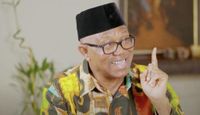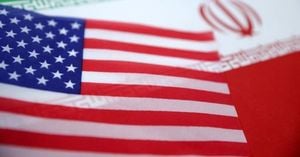Peter Obi, the Labour Party’s presidential candidate in Nigeria’s 2023 general election and former governor of Anambra State, has sounded a sharp alarm over the country’s rapidly declining foreign direct investment (FDI). Despite a flurry of international trips by President Bola Tinubu, his ministers, and other top officials, the numbers paint a bleak picture: Nigeria’s FDI has plummeted, and the underlying issues, according to Obi, are rooted in ineffective leadership, poor governance, and reforms that lack coordination and vision.
According to the National Bureau of Statistics (NBS), FDI to Nigeria nosedived by a staggering 70% in the first quarter of 2025, dropping to just $126.29 million from $421.8 million in the final quarter of 2024. This sharp decline is particularly jarring when set against the backdrop of a total capital importation figure of $5.64 billion for Q1 2025. Of that sum, FDI accounted for a mere 2.24%, a dramatic fall from the 8.2% share recorded in Q4 2024. The data, as cited by Realnews and other outlets, underscores a troubling reality: investor confidence in Nigeria is eroding at an alarming rate.
Obi’s criticisms are not limited to the numbers. He points to a deeper malaise—one that cannot be fixed with photo-ops or diplomatic handshakes. "Disturbingly, about 90% of the imported capital went into speculative money market instruments," Obi noted, according to The Sun. "With such a high proportion of capital importation flowing into speculative investments, the impact on industrial growth or job creation is highly insignificant and elusive, given the ease with which such ‘hot money’ can exit the economy."
For those unfamiliar with the term, these speculative instruments—often referred to as "hot money"—are short-term investments that can be pulled out of the country at a moment’s notice. They offer little in the way of long-term job creation or industrial development. In fact, their volatility can leave economies exposed to sudden shocks, as investors chase higher yields elsewhere.
The manufacturing sector, traditionally a bellwether for sustainable economic growth, has also taken a hit. Capital flows to manufacturing fell by 32.1%, from $191.92 million in Q1 2023 to $129.92 million in Q1 2025. Obi sees this as a clear sign of declining trust in a government whose reforms he describes as "uncoordinated and largely reactive." He argues that such a lack of direction is scaring off the very investors Nigeria so desperately needs.
It’s not as if there’s a global drought of investment. Quite the opposite, in fact—at least in Africa. According to United Nations Conference on Trade and Development (UNCTAD) data cited by Obi, while global FDI flows fell in 2024, Africa experienced a remarkable 75% surge, reaching $97 billion. This growth was fueled primarily by investments from Europe, the United States, and China. Egypt led the continent with a staggering $46.58 billion in FDI, followed by Ethiopia with $3.98 billion, Côte d’Ivoire at $3.80 billion, Mozambique with $3.55 billion, and Uganda at $3.30 billion. Other notable recipients included the Democratic Republic of Congo ($3.11 billion), South Africa ($2.47 billion), Namibia ($2.06 billion), Senegal ($2.02 billion), Guinea ($1.83 billion), and Morocco ($1.64 billion).
And yet, Nigeria—the so-called "Giant of Africa"—found itself on the sidelines. The country attracted only $1.08 billion in FDI in 2024, representing just about 1% of Africa’s total and marking a 42% decline from the previous year. Even more concerning, after this initial drop, Nigeria’s FDI fell a further 75% between Q4 2024 and Q1 2025. As Obi put it: "There is no better confirmation of the lack of trust in this government, whose reforms remain uncoordinated and largely reactive."
Obi’s frustration is palpable. He has repeatedly argued that the root causes of Nigeria’s FDI woes are not external, but internal. He points to the country’s poor performance on key governance indicators: rule of law, regulatory quality, government effectiveness, and voice and accountability. These are not abstract metrics. They are the yardsticks by which international investors judge whether a country is a safe and promising place to do business. And on these counts, Nigeria is falling short.
"We cannot achieve sustainable growth and development with ineffective leadership and a weak government," Obi emphasized in a statement on August 15, 2025. He warned that the country’s continued reliance on speculative capital and uncoordinated reforms would do little to address the structural challenges holding back the economy. "The so-called ‘Giant of Africa’ cannot continue this way," he stressed. "We must fix leadership and governance if we truly want to attract investment, create jobs, and achieve sustainable development."
Obi’s remarks come at a time when the Tinubu administration has faced growing criticism for its approach to economic management. Supporters of the administration argue that the government’s international outreach is a necessary step to reposition Nigeria as a destination for global capital. They point to ongoing efforts to improve infrastructure, streamline regulations, and promote Nigeria’s vast market potential. However, critics like Obi contend that without addressing the core issues of governance and leadership, such efforts are doomed to fall short.
The debate over how to attract FDI is not unique to Nigeria. Around the world, countries compete fiercely for investment dollars, offering tax incentives, regulatory reforms, and high-profile summits to lure foreign capital. But as the numbers show, investors are increasingly discerning. They look beyond the headlines and photo opportunities, focusing instead on the fundamentals: political stability, transparent regulations, and a government that delivers on its promises.
For Nigeria, the stakes could hardly be higher. FDI is a critical driver of job creation, technology transfer, and economic diversification. Without it, the country risks falling further behind its regional peers, missing out on opportunities to build a more resilient and inclusive economy. The manufacturing sector’s decline is particularly worrying—without investment in factories, machinery, and skills, hopes for large-scale employment and export-led growth will remain out of reach.
Obi’s warning is clear: unless Nigeria addresses its leadership and governance challenges head-on, the country will continue to lose ground in the global contest for investment. The data, as stark as it is, tells only part of the story. The real question is whether Nigeria’s leaders are prepared to confront the hard truths—and make the changes necessary to restore investor confidence and put the country back on the path to sustainable growth.
As the world’s economic tides shift and Africa’s fortunes rise, Nigeria’s place at the table is far from guaranteed. The next moves by its leaders may well determine whether the "Giant of Africa" can reclaim its stature or remain a bystander in the continent’s unfolding economic renaissance.




